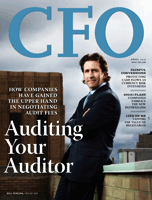401(k) Paternalism – Employers Take More Active Role in Employees’ 401(k) Decisions

April 2010 Issue
This month’s CFO magazine featured an interesting article regarding the change taking place in how employers’ are taking a more paternalistic approach to their employees’ decisions with their 401(k) accounts. Some of the issues that have made paternalism more necessary (not that it’s new news) are as follows:
Employers have long struggled to educate employees about how to actively manage their accounts for maximum gains.
Fidelity reports that among the 11 million 401(k) plan participants in the plans it administrates, only 6.1% made any kind of asset exchange in the hairy last quarter of 2008, up a mere percentage point from the previous quarter, and only 11.3% took any action in all of 2009.
For those of you that are thinking, “Well, that’s better than a higher percentage of people jumping in and out,” you have to consider this also means there was little to no rebalancing taking place late last year after the market’s rebound.
While that inertia likely saved many people who otherwise would have made bad moves, such as selling at the bottom of the market and buying back in as it climbed, it is hardly what most would consider a wise investment strategy.
Unfortunately, we have run into fear and greed oriented investing (seeing a lot of greed right now) numerous times, regardless of the investor’s perceived level of investment sophistication. That being said, what are they doing about it?
Investment Advice:
Fifty-one percent of employers now offer online investment guidance, 39% provide online advice, and 30% offer phone access to advisory services, according to a recent Hewitt survey. Another 34% plan to add some form of advice this year. (At most companies, the retirement plan or the company itself will pay for a third party to provide this advice, in order to avoid the legal burdens that befall company executives who give it.)
While this sort of help sounds good in theory, there are several obstacles. For one, the perpetual debate about what kinds of advice can be offered, and by whom, has yet to be resolved. Pending regulations at the Department of Labor are likely to redefine what is and isn’t acceptable, and a bill in the House of Representatives (HR 2989) also seeks to put new boundaries around it. “Until the Department of Labor advice regulations are finalized — there’s some justifiable angst about what is conflicted advice and what is not” — many employers are sitting tight, says Lori Lucas, defined contribution practice leader at Callan Associates, an investment consulting firm.
Managed Accounts:
Some 26% of employers now offer this option. Among them is Allergan, a $4.4 billion maker of pharmaceutical products. “A lot of people have come to me over the years and said, ‘I’d rather have someone do this for me,'” says Gary Prem, assistant treasurer at the company. Several years ago he enlisted Financial Engines (which offers both advice and management options) to do just that.
In our opinion, managed accounts are simply a more efficient delivery of investment advice, and should be held to the same DoL conflict-free, fiduciary standard as 401(k) advice (more to come on this). However, for the time being, both services options are becoming much more appealing to paternalistic employers sponsoring 401(k) plans. The level of uncertainty in the stock market, as well as the DoL’s proposed regulations of conflict-free advice, should only continue the advancement of plan sponsors moving forward with providing 401(k) advice/managed accounts to their employees, which is the help they desire.

Some places it is like pulling teeth to get online survey paid but they have a $2.00 payout minimum which is great.